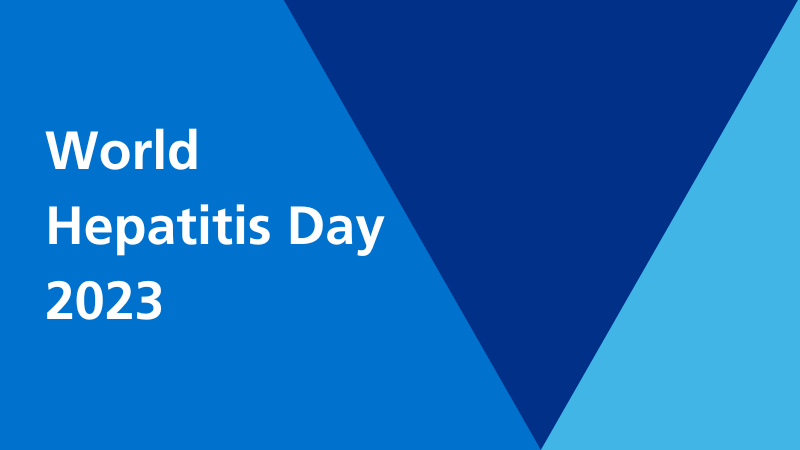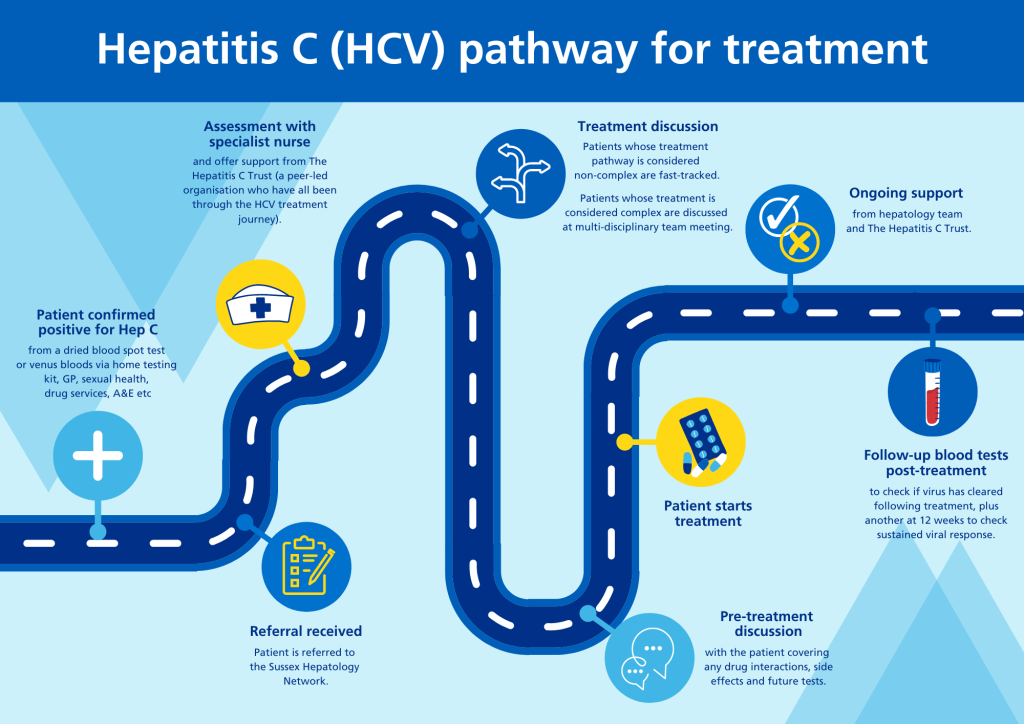
World Hepatitis Day takes places every year on 28 July to raise awareness of the global burden of viral hepatitis and to influence real change.
There are five main strains of the hepatitis virus – A, B, C, D and E. More than 1 million lives are lost each year to Hepatitis B and C, both blood borne viruses.
The World Hepatitis Day campaign this year is called ‘we’re not waiting’ and wants to highlight the need to accelerate the fight against viral hepatitis and the importance of testing and treatment for people and calling for immediate action to end stigma and discrimination surrounding the illness.
People should be tested for blood borne viruses (including HIV) if they have any of the following risk factors:
- Time in prison
- Homelessness
- Unlicensed tattoos or piercings
- Workplace needle stick injuries
- Intravenous and other drug use
- Vertical Transmission (childbirth)
- Dental or medical procedures abroad
- Unprotected sex with multiple partners
- First generation migrants from high-risk areas
- Blood transfusions pre-1991
- Organ Transplants pre-1992
Targeting Hepatitis C
Hepatitis C is preventable, treatable, and curable for most people. If left untreated, however, the infection over time can lead to scarring on the liver (cirrhosis), liver failure or cancer.
The earlier people find out whether they are infected, the better the chance of a long and healthy life, and no further onward transmission.
Hepatitis C can be treated with a free course of tablets from the NHS, this highly effective treatment has minimal side effects and has a 95% cure rate.
The Sussex Hepatology Network, set up in 2016, is responsible for delivering Hepatitis C treatment across the whole county and is comprised of two NHS Trusts: University Hospitals Sussex NHS Foundation Trust), covering Brighton & Hove and West Sussex locations, and East Sussex Healthcare NHS Trust (ESHT).
As well as other NHS trusts, they also collaborate with many different partner organisations, all of which are working toward the same goal of eliminating Hepatitis C in the UK by 2025.
Since 2016 the network has delivered more than 2,000 Hepatitis C treatments to patients and out of all the networks in England, they treat the highest proportion of patients outside of hospital settings, focusing on making treatment as accessible as possible for people across Sussex.

Many of the individuals, most at risk of catching Hepatitis C, already face severe healthcare inequalities, so making the most of any opportunity to test is incredibly important. In Sussex, we have an incredible team of nurses and peer support workers ready to treat patients as soon as their diagnosis has been confirmed. Revolutionary treatments, with minimal side effects and cure rates of over 95%, are available across Sussex, so now’s the time to get tested, treated and cured!”
Duncan Cresswell, Clinical Networks Manager
The more people tested, the closer we get to elimination
Free self-testing portal
In May 2023, the NHS launched a new testing service, allowing people to easily and discreetly get tested for Hepatitis C from the comfort of their home. This portal to receive a free home test kit for Hepatitis C is available on the UHSussex website.
Through the NHS, you can do a free, confidential Hepatitis C test by yourself at home.
Self-testing is simple – order the free confidential kit, take your sample by simply pricking your finger and collecting some blood and post your sample to the lab.
The person will then be contacted with their test result within two weeks. If an individual tests positive, a member of the Sussex Hepatology Network will call to discuss the result and next steps regarding treatment.
Since it was introduced, one person in Sussex has already been identified as being positive for Hepatitis C through this self-testing method and is receiving treatment and care from the network.
Screening in emergency department
All patients who attend A&E at the Royal Sussex County Hospital are now screened for Hepatitis C when having routine blood tests, unless they choose to opt out.
The screening, which includes all patients over 16 years old, is in addition to routine HIV testing, which was introduced at the hospital’s emergency department in April 2022.
This testing helps to identify people who may be unknowingly living with Hepatitis C. These patients can then be provided with the support they need to successfully complete treatment.
It also provides us with a platform to re-engage patients who may know they have an active Hepatitis C virus, but who have not completed treatment.
Since its launch in March 2023, over 8,000 patients have been screened, on average almost 600 a week, with 10 patients testing positive for Hepatitis C.
These patients have since all been either reached out to, engaged with by the network and are either on or approved for treatment.
Our Sussex Hepatology Network, the self-testing portal and emergency department screening, is all a key part of the NHS drive to end new Hepatitis C infections and this World Hepatitis Day, we’re proud to share our bid to make change happen.